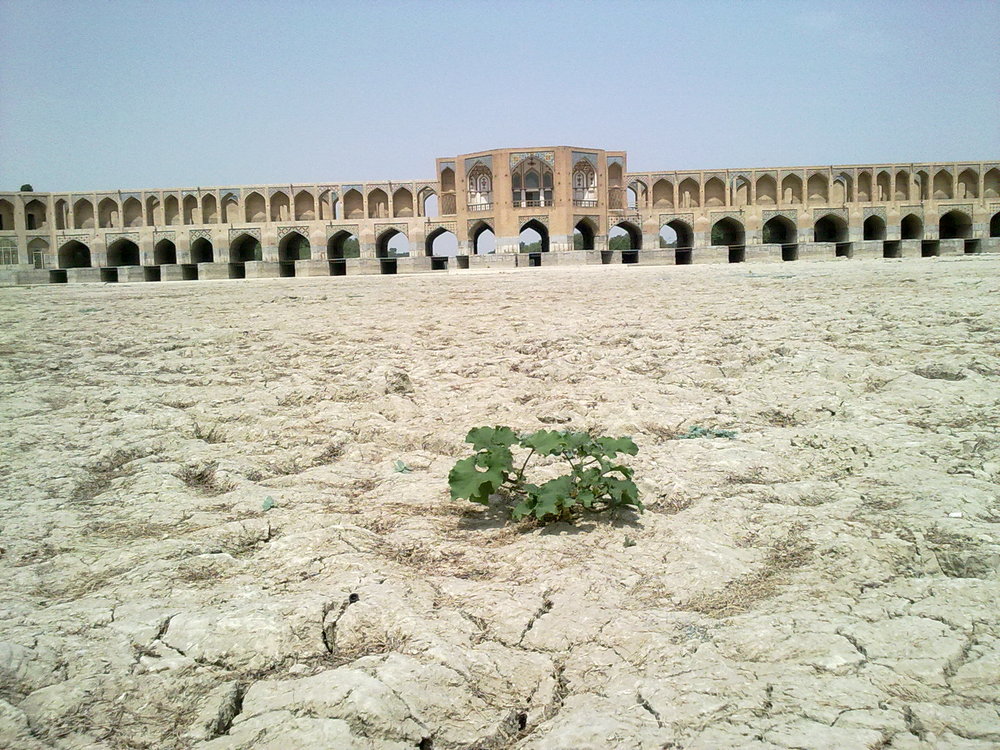Expert believes Iran’s water shortage can be tackled

TEHRAN — While water scarcity has become a serious issue in Iran, it is still possible to tackle it, an Iranian professor of cross-cultural environment management at the Phoenix University has said.
Considering the current situation, discussing water management and finding solutions is required more than ever, Saeed Pourali said.
Excessive groundwater and surface water withdrawals, along with continuous droughts, has reduced groundwater levels, resulting in depletion of rivers, lakes and wetlands, Pourali said.
In addition to climate change, lack of proper use of modern sciences coupled with lack of attention to warnings by officials about water shortage have aggravated the situation, Khabaronline qouted Pourali as saying on Sunday.
If water scarcity is not resolved urgently, its impacts will soon bring heavier and irreparable damage to allsectors in the country, he stated, warning the harmful consequences caused by lack of proper planning would gradually affect the entire country.
Pourali further explained that some experts are very disappointed due to the lack of proper water management over the last few decades, believing that this situation is irreversible and water will no longer be available in Iran
He said this means that over the last few decades “we have lost the time for preventing water shortage and raising public awareness” and suddenly “we want to come up with a solution to fight it”.
To address the issue, Pourali suggested, the only way is to listen to the advice of those who are specialized in climate change and are familiar with the latest climateand water technologies.
Referring to water transfer or water rationing as strategies to counter water shortage, he said that such plans are band-aid solutions, which may not be fully compatible with the long-term plans required to deal with the problem.
Long-term planning requires scientific studies, top level managerial decisions, and strict supervision, he explained.
“The most important factor in proper decision making for short-term solutions is seeking advice from experts. So, implementing plans based on personal opinions and political considerations, being unscientific, would generally exacerbate the situation and harm the entire country.
“For instance, purchasing water from neighboring countries for agricultural purposes, not only carries considerable costs, but also threatens national interests and act against self-sufficiency policies.
“Water shortage in Iran can still be managed by proper planning, long-term follow-up assessment, and creating a culture of moderate consumption in the country.”
Pourali went on to say that cultural awareness about moderate use of water can begin from households including saving water during brushing, bathing, and dish washing, and can be spread to industry and agriculture by employing methods such as drip irrigation, greenhouse cultivation, etc.
Such cultural approaches can change water consumption patterns in case of water shortage, especially in industrial and agricultural sectors, Pourali said, adding that such approaches have been practiced and lasted for centuries in drought-ridden areas such as Africa and can be implemented in Iran as well.
Elsewhere in his remarks he noted that in addition to proper water consumption methods, scientific and advanced methods such as generating clouds, cloud seeding, and attracting rainfalls should be taken into consideration.
“According to the Food and Agriculture Organization (FAO), agricultural water usage in Iran is 22 percent above the global average while water productivity [crop yield per cubic meter of water consumption] is one-third of world average”, he said, adding, “In other words, the agricultural sector generates about 10 percent of the country's gross domestic product (GDP) but consuming 92 percent of the country's fresh water”.
“The statistics compiled by FAO indicate that the main problem which has triggered water shortage in Iran is lack of proper crisis and resource management. Therefore, at managerial level we need to decidewhether we want to be agricultural producing country or be an importer of agricultural products and conservewater resources.
“Moreover, proper use of climatic information and scientific methods is essential in preparation of a comprehensive water management plan to identify the regions and prepare a specific plan that meets the climatic characteristics of each area.
The science of management provides managers with a variety of decision making methods for specific situations, which includes six steps comprising identifying and defining the problem and the causes of problem; finding scientific solutions available for the problem; evaluating the possible economic, social, cultural, biological, and political consequences of each solutions; choosing the best solution regarding our priorities; making the decision; and follow up on the outcomes of the decision.
Therefore, to prevent a plan from becoming a crisis, seeking experts’ advice in related issue should be taken into consideration, Pourali highlighted.
“There are many talented specialists in Iran’s scientific community and the knowledge needed to deal with environmental crises is also available.
“To overcome water scarcity in Iran, a strong strategic management which can prepare effective water management plans, is needed.”
FB/MG
